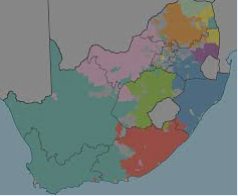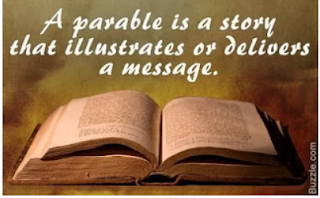Monday, Jan 25 Born a Crime chapter 4
Thank you all for the 121 late assignments that were received by midnight- or a bit after. That's it for marking quarter 2 grades.
As you recall, the Thursday / Friday assignment from last week- the 200 word choice response-was due by Saturday. As of today it is late. That was the first writing grade of the 3rd quarter. Please make this a good one. If you are absent, it is your responsibilty to check google classroom or our class blog directly.
Please share your work directly, by copying copying and pasting the assignments directly onto a google doc. Once completed, share. You will see the drop down menu with my name / number (2006630). I have quicker access to the work to grade and recorded your work into power school; as well, I have frequently discovered that material is google classroom is blank or incomplete. This is disconcerting.
In class we are continuing with Trevor Noah's Born a Crime
Remember that English is the lingua franca, the bridge language, or common language used in government and the media.
In class we are reading/ listening to chapter 4.
VOCABULARY:
anomaly- (noun)-something that deviates from what is standard, normal, or expected.
bewildered (adjective)- confused
Home work: copy the multiple choice questions that follow onto a google doc. Highlight he correct response. Share with me at dorothy.parker@rcsdk12.org or 2006630. This is by 10:am Tuesday/ tomorrow.
chapter 4 begin pages 39 to 46
Chapter 4 forward to 2:43 to page 43 says "Have a good day man"
Chapter 4 contines: begins on page 43 They were ready to do me harm
Chapter 4: preamble or forward.
When I was growing up we used to get American TV shows rebroadcast on our stations: Doogie Howser, M.D.; Murder, She Wrote; Rescue 911 with William Shatner. Most of them were dubbed into African languages. ALF was in Afrikaans. Transformers was in Sotho. But if you wanted to watch them in English, the original American audio would be simulcast on the radio. You could mute your TV and listen to that. Watching those shows, I realized that whenever black people were on-screen speaking in African languages, they felt familiar to me. They sounded like they were supposed to sound. Then I’d listen to them in simulcast on the radio, and they would all have black American accents. My perception of them changed. They didn’t feel familiar. They felt like foreigners.
Language brings with it an identity and a culture, or at least the perception of it. A shared language says “We’re the same.” A language barrier says “We’re different.”The architects of apartheid understood this. Part of the effort to divide black people was to make sure we were separated not just physically but by language as well. In the Bantu schools, children were only taught in their home language. Zulu kids learned in Zulu. Tswana kids learned in Tswana. Because of this, we’d fall into the trap the government had set for us and fight among ourselves, believing that we were different.
The great thing about language is that you can just as easily use it to do the opposite: convince people that they are the same. Racism teaches us that we are different because of the color of our skin. But because racism is stupid, it’s easily tricked. If you’re racist and you meet someone who doesn’t look like you, the fact that he can’t speak like you reinforces your racist preconceptions: He’s different, less intelligent. A brilliant scientist can come over the border from Mexico to live in America, but if he speaks in broken English, people say, “Eh, I don’t trust this guy.”
“But he’s a scientist.”
“In Mexican science, maybe. I don’t trust him.”
However, if the person who doesn’t look like you speaks like you, your brain short-circuits because your racism program has none of those instructions in the code. “Wait, wait,” your mind says, “the racism code says if he doesn’t look like me he isn’t like me, but the language code says if he speaks like me he…is like me? Something is off here. I can’t figure this out.”
Chapter Four Multiple Choice Questions. Again: copy onto a google doc, highlight the correct response; then share (dorothy.parker@rcsdk12.org or 2006630) This is due by 10am Tuesday/ tomorrow.
Chapter 4 Questions
1. In what language are students in South Africa taught?
A. the lingua franca
B. their tribal language
C. English
D. Afrikans
2. After Tevor accidently punctured his cousin's eardrum, why was he not punished?
A. He actually was, once his mother came home.
B. His grandmother thought his body was too colorful when hit.
C. His cousins never said Trevor was to blame.
D. Trevor was too young to punish.
3. What does Trevor mean when he says that he was given the same "treatment as the American justice system"?
A. He was given more lenient treatment than the black kids.
B. When he was pulled over for driving he had to show his license and registration.
C. When he disrupted the classroom, he had to stay inside from recess with the other who were loud.
D. When his grandmother baked cookies, they were shared equally among the cousins.
4. In what way was Trevor NOT treated within the Soweto ghetto?
A. His skin color was so unique people would use him as a landmark.
B. Children would throw rocks at him, as they thought he was a devil.
C. He would have to eat inside at funerals, because people thought he was white
D. People would come up to touch him to see if he were real.
5. According to Trevor Noah, which of the following is NOT true about knowing the English language?
A. Knowing English was the difference between getting off with a fine or going to prison.
B. Knowing English was the difference between getting a job or staying unemployed.
C. Knowing English meant you were intelligent.
D. Knowing English, meant you didn't have to learn your home language to go to school.
6. In what way was Trevor like a chameleon?
A. He could escape by climbing fences quickly.
B. His family was afraid he would change color.
C. His language skills allowed him to adapt to different circumstances.
D. He could eat food was served to him.
7. What does Trevor mean when he says that when he was eleven years old, Trevor says he was seeing his country for the first time?
A. That everyone, all four of the racial categories, could actually get along.
B. People could occupy the same space and not have anything to do with each other.
C. That with an education, the racial differences would disappear
D. That the only place safe was back in the Soweto ghetto.
8. Why did Trevor want to change to the B class?
A. Everyone in B class was smarter, and he felt like he belonged.
B. He culturally identified with the students in B class.
C. The students in A class were bullying him.
D. His teachers and principal forced him to change.






Comments
Post a Comment